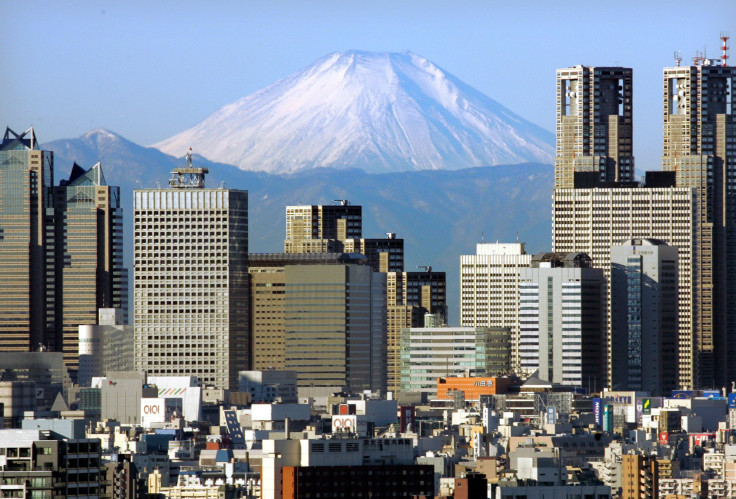Japan Budget Draft Details Record Defense, Social Security Spending

Japan’s policymakers allocated a record amount for defense spending and a massive stimulus to revive its economy, in a draft budget for 2016 approved by Prime Minister Shinzo Abe’s cabinet Thursday.
Total spending for the fiscal year starting April 1 will be 96.72 trillion yen ($799.93 billion), according to the draft budget, which is Abe’s fourth since he returned to power in 2012. The budget also detailed plans to rein in Japan’s public debt -- the highest in the world.
Defense outlays for 2016 were set at 5.05 trillion yen ($41.9 billion), up 1.5 percent from 2015 to cope with growing personnel expenses and to account for a controversial bill passed in September that allows Japan's military to fight overseas -- for the first time since its defeat in World War II -- to defend an ally under attack. The draft also proposes to set aside 59.5 billion yen ($493.7 million) to relocate an U.S. Marine Corps base on Futenama island to a location on Okinawa.
Thursday’s budget also featured a record high welfare spending plan to cope with Japan’s ageing population. Social security related expenditure -- the largest part of the budget -- would be raised by 1.4 percent. The Japanese government, keen on its plan to achieve a “desirable birth rate of 1.8 percent” said it would invest 35.6 billion yen ($295.4 million) in developing new child care facilities so that no one is "forced to leave their jobs for nursing care.”
Higher tax revenues are expected to cover nearly two-thirds of the inflated bill, compared to less than half in 2009. Tax revenue is expected at a 25-year high of 57.6 trillion yen ($472.9 billion), boosted by rising corporate profits. Tokyo has indicated that it will direct the funds toward cutting borrowing to an eight-year low.
Japan’s fiscal dependence -- measured by the ratio of bond issuance to revenue earned -- would be down to 35.6 percent, according to the draft budget, the lowest since the financial meltdown in 2008.
Here are some key numbers from the budget set to take effect in April 2016.
- Social security spending, the budget's biggest item, will rise 441 billion yen ($3.66 billion) to a record 31.97 trillion yen ($256.3 billion).
- Assumed interest rates will be cut from 1.8 percent in 2015 to a record low of 1.6 percent on the back of debt buying by the central bank, limiting gains in interest payments.
- Dial back the amount of newly issued government bonds by 2.4 trillion yen to 34.4 trillion yen ($285.4 billion).
- The budget maintained its GDP growth forecast of 1.7 percent and an unemployment rate of 3.2 percent for 2016.
- Additional funds to local government bodies abolished to reflect a rebound in local tax revenue.
- The government also aims to achieve a primary surplus in its budget by 2020.
© Copyright IBTimes 2024. All rights reserved.





















